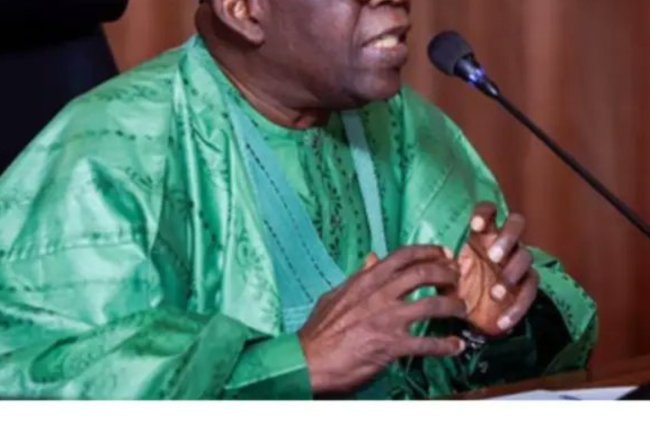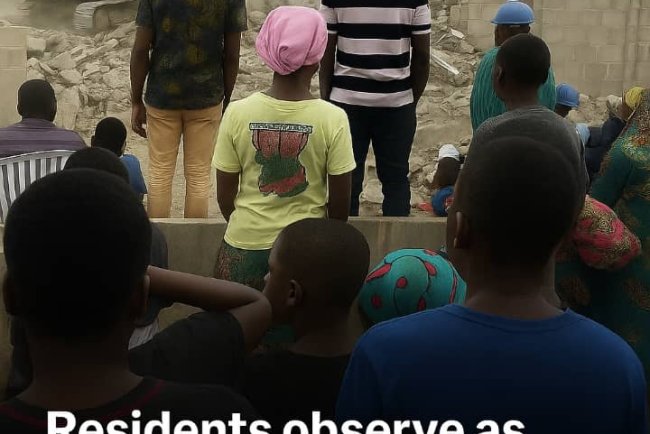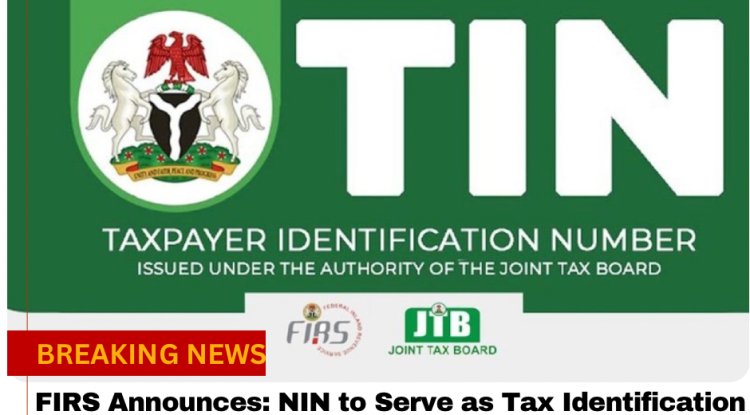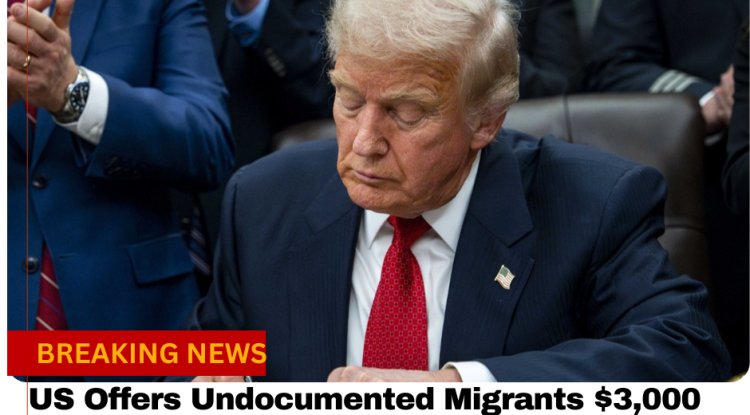Kano State Governor Abba Kabir Yusuf Announces Plans to Present Historic ₦1 Trillion 2026 Budget
Kano Governor Abba Kabir Yusuf plans historic ₦1 trillion 2026 budget, focusing on education, health, agriculture, housing & SMEs. First-ever by a northern state.
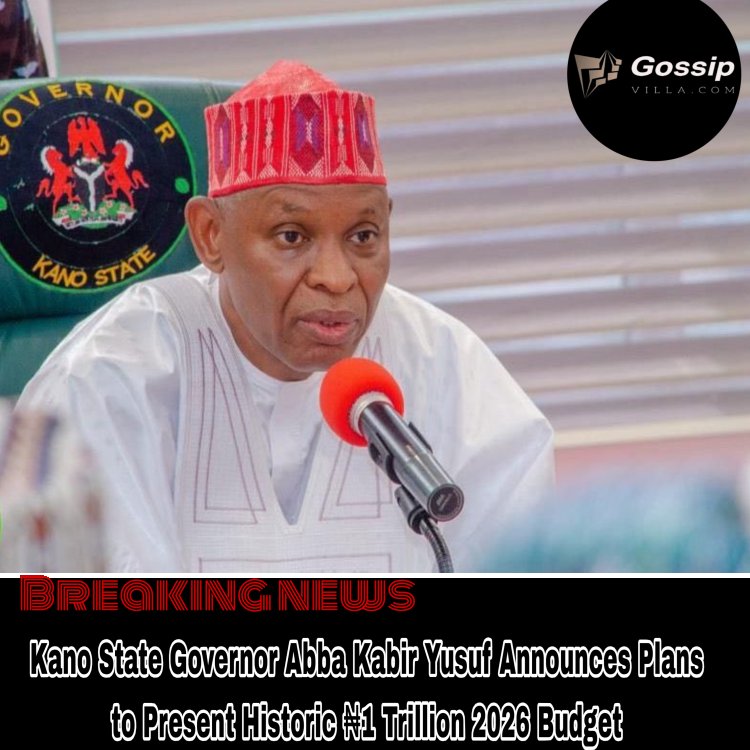
Kano State Governor Abba Kabir Yusuf Announces Plans to Present Historic ₦1 Trillion 2026 Budget
In a groundbreaking development that’s sending ripples across Nigeria’s northern region, Kano State Governor Alhaji Abba Kabir Yusuf has unveiled ambitious plans to table the state’s first-ever ₦1 trillion budget for the 2026 fiscal year. This historic announcement, made during a high-level executive council meeting on November 14, 2025, marks a pivotal moment in Kano’s fiscal trajectory and underscores the administration’s commitment to transformative governance. As the largest proposed budget by any northern state in Nigeria’s history, it signals a bold shift toward self-sustained economic empowerment, infrastructure overhaul, and social welfare enhancement.
Governor Yusuf, who assumed office in May 2023 amid a fiercely contested election, has positioned this budget as a cornerstone of his administration’s vision for a “new Kano.” Speaking at the Second Special Executive Council Meeting convened specifically to review and finalize the proposals, the governor emphasized that the unprecedented scale reflects years of strategic reforms in revenue generation and fiscal discipline. “Our administration has strengthened internal revenue mechanisms and sealed leakages, which now allows us to plan boldly for transformative projects in 2026,” Yusuf declared, according to a press release issued by his spokesperson, Sunusi Bature Dawakin Tofa. This isn’t mere rhetoric; it’s backed by tangible progress in internally generated revenue (IGR), which has seen Kano top national charts in 2024 through overhauls at the Kano State Internal Revenue Service (KIRS).
The Road to ₦1 Trillion: From Fiscal Challenges to Revenue Renaissance
Kano State, Nigeria’s most populous with over 15 million residents and a bustling commercial hub, has long grappled with budget constraints typical of subnational governments heavily reliant on federal allocations. In 2025, the state operated on a proposed appropriation of ₦549 billion, a significant jump from the ₦350 billion in 2024, yet still dwarfed by the needs of its teeming population. Governor Yusuf’s administration, however, has aggressively pursued IGR diversification. The KIRS, under the governor’s directive, blocked revenue leakages upon his inauguration and overhauled operations, leading to a milestone where Kano emerged as the highest IGR performer in 2024, as confirmed by Yusuf’s Special Adviser on Information, Ibrahim Adam. (Daily Trust)

Looking ahead, the KIRS has set an audacious target of ₦15 billion in monthly revenue starting 2026, translating to a cumulative ₦180 billion annually. This ambition was revealed at a multi-sector stakeholders’ engagement in October 2025, in collaboration with the Partnership for Agile Governance and Climate Engagement (PACE). Executive Director of Compliance and Enforcement at KIRS, Alhaji Muhammed Abba Aliyu, highlighted how digital tools, taxpayer education, and enforcement against evasion have fueled this growth. While the state plans modest borrowings ₦24.8 billion in 2026, split between ₦14 billion domestic and ₦10.8 billion external the focus remains on organic revenue streams to minimize debt dependency.
This fiscal prudence isn’t isolated. Recent approvals, like the ₦19.02 billion for key development projects in November 2025, including weighbridges and Hajj operations, demonstrate the administration’s ability to allocate resources efficiently across sectors. A supplementary budget of ₦215.3 billion approved in September 2025 further illustrates legislative buy-in, ensuring seamless execution of ongoing initiatives.
Key Focus Areas: Building a Prosperous Kano
At the heart of the 2026 budget are targeted investments designed to address Kano’s pressing needs while fostering long-term sustainability. Governor Yusuf outlined five priority pillars: housing development, agriculture, education, healthcare, and support for small and medium enterprises (SMEs). According to Leadership News These aren’t abstract goals; they’re rooted in the state’s economic DNA. Kano, a major agricultural powerhouse producing groundnuts, cotton, and grains, will see enhanced irrigation schemes and mechanization to boost yields and farmer incomes. In education, expect expansions in teacher training and infrastructure, building on the 77% budget performance in 2024.
Healthcare allocations aim to upgrade primary facilities and introduce telemedicine, tackling maternal and child mortality rates that remain stubbornly high. Housing initiatives, meanwhile, align with urban renewal projects, providing affordable units to mitigate the housing deficit exacerbated by rapid urbanization. For SMEs the backbone of Kano’s informal economy grants, low-interest loans, and market access programs will stimulate job creation, potentially generating thousands of opportunities in a state where youth unemployment hovers around 30%.
This holistic approach extends to infrastructure, with continuations of road networks, flyovers, and drainage systems that have defined Yusuf’s tenure. The budget’s transmission to the Kano State House of Assembly next week will invite rigorous scrutiny, but early indications suggest strong support, given the assembly’s track record of approving key requests.
Broader Implications: A Model for Northern Nigeria?
The ₦1 trillion milestone isn’t just numeric, it’s symbolic. As the first northern state to breach this threshold, Kano under Yusuf is redefining fiscal federalism in Nigeria. It challenges the narrative of northern states as perennial aid recipients, showcasing how prudent leadership can unlock local potentials. Economists predict ripple effects: increased IGR could reduce federal dependency, freeing resources for innovation. Yet, challenges loom, implementation risks, inflation pressures from naira volatility, and equitable distribution to rural areas like Gaya, Yusuf’s birthplace.
Public reaction, buzzing on platforms like X (formerly Twitter), is largely optimistic. Posts from influencers and news outlets echo the press release, with users hailing it as a “game-changer” for livelihoods. Governor Yusuf, a civil engineer by training and protégé of former Governor Rabiu Kwankwaso, reaffirmed his pledge to transparency: “Every sector will receive necessary support to deliver quality services.” This commitment, echoed in the state’s 2025 Citizen’s Budget, positions accountability as non-negotiable.
READ MORE ON : Federal Government Borrows N17.36 Trillion in 10 Months, Exceeds 2025 Target by 55.6%
Looking Ahead: Sustainable Growth in Uncertain Times
As Kano edges closer to 2026, this budget stands as a testament to visionary planning amid national economic headwinds. With federal allocations uncertain and global commodity prices fluctuating, Governor Yusuf’s strategy blending revenue reforms with targeted spending offers a blueprint for resilience. If approved, it could propel Kano toward GDP contributions rivaling mid-sized nations, fostering a cycle of prosperity.
For residents, the promise is tangible: better schools, healthier communities, thriving farms, and bustling markets. For Nigeria, it’s a reminder that bold, data-driven governance can bridge divides. As the assembly deliberates, all eyes are on Kano, the Center of Commerce proving once more why it’s the pulse of the north.
What's Your Reaction?








